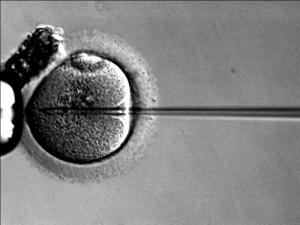 John Wilcox, MD, FACOG, laid the foundation for his success as a leader in reproductive medicine at some of the country’s most prestigious institutions. Following his graduation in 1986 from the University of California, San Diego, where he studied biomedical engineering and managerial economics, John Wilcox, MD, matriculated at the Keck School of Medicine of the University of Southern California (USC). He earned his Doctor of Medicine in 1990 and went on to serve his residency in the Department of Obstetrics and Gynecology at the Keck School of Medicine of USC, where today he still serves as Assistant Clinical Professor.
John Wilcox, MD, FACOG, laid the foundation for his success as a leader in reproductive medicine at some of the country’s most prestigious institutions. Following his graduation in 1986 from the University of California, San Diego, where he studied biomedical engineering and managerial economics, John Wilcox, MD, matriculated at the Keck School of Medicine of the University of Southern California (USC). He earned his Doctor of Medicine in 1990 and went on to serve his residency in the Department of Obstetrics and Gynecology at the Keck School of Medicine of USC, where today he still serves as Assistant Clinical Professor.
The oldest medical school in Southern California, the Keck School of Medicine of the University of Southern California was founded as the USC College of Medicine and today exists as a center of medical education, patient care, and research. Located near downtown Los Angeles, the school sits next to one of the nation’s largest teaching hospitals, the Los Angeles County+USC Medical Center. Students and residents from Keck work at the nearby USC Norris Comprehensive Cancer Center and Hospital, Children’s Hospital Los Angeles, and Doheny Eye Institute, among others, all of which partner with the school.
Keck has won numerous awards and accolades, named number 34 for research on U.S. News and World Report’s list of top 135 U.S. medical schools. In addition, the magazine ranked the school’s partner, Children’s Hospital Los Angeles, as the best West Coast children’s facility. Several of the departments at Keck have also been recognized as among the best in the country, including urology, gynecology, neurosurgery and neurology, ophthalmology, and orthopedics. Keck contains several research institutes and facilities, such as the Zilkha Neurogenetic Institute, the USC Institute for Genetic Medicine, the Eli and Edythe Broad Center for Regenerative Medicine and Stem Cell Research at USC, and the USC Institute for Global Health. With more $275 million in annual awards, Keck research programs include bioengineering, diabetes, cancer, genetics, neuroscience, preventive medicine, stem cell and regenerative medicine, and obesity.
The renowned faculty at Keck has achieved several pioneering accomplishments. In 1970, they were the first to discover the cancer-causing gene; in 2002, they created the first retinal implant to restore sight to those who suffered from diseases of the retina; and in 2010, the faculty discovered HIV-resistant blood stem cells. More than 500 physicians and specialists serve at the school, and nearly 200 doctors have ranked on lists such as America’s Top Doctors and Best Doctors.




